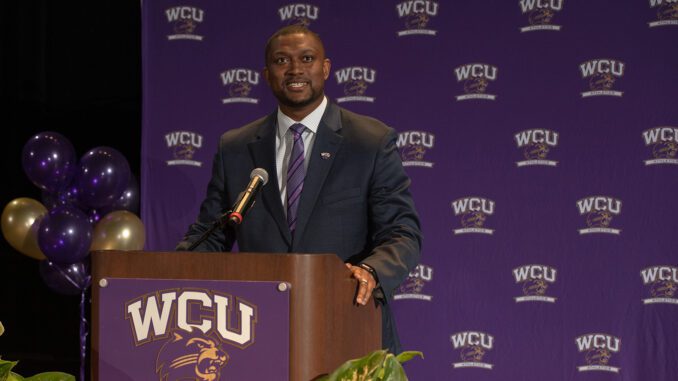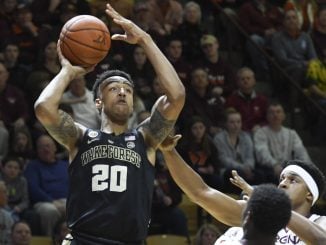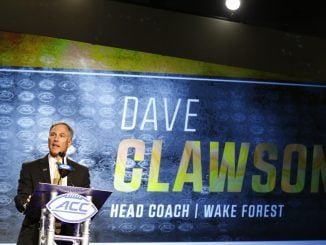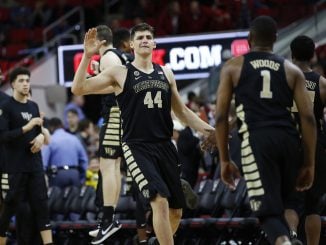
There was a synergy to Western Carolina’s hiring of Justin Gray as its new basketball coach last week.
It’s a circle that began on March 26 when Pat Kelsey left Winthrop to take the job at College of Charleston. About a week later, he was replaced by WCU’s Mark Prosser.
That opened the door for Gray, who — in a juicy twist of fate — wasn’t just Kelsey’s former assistant at Winthrop. He was also a player at Wake Forest for Prosser’s father, Skip.
As neatly as that all tied together, it was another unrelated connection that helped the 37-year-old Charlotte native land his first head coaching opportunity.
“I first became familiar with Justin back in about 1998-99 when he was suiting up for West Charlotte High School, and I was across the court at Butler High School,” WCU athletic director Alex Gary said. “I remember a sense of confidence about him that many young people just don’t have.
“Over the last week or so, I’ve been reminded of that confidence and that motivation simply to be the best, a confidence and motivation we need in order to get this program where Catamount nation knows it should be.”
WCU hasn’t been to the NCAA Tournament since 1996 when it came within a basket of becoming the first 16th seed to upset a No. 1 seed in a 73-71 loss to Purdue.
Despite improvements made over the past three years under the younger Prosser, the Catamounts have enjoyed only two winning seasons over the past decade.
Although Gray’s coaching resume is limited to just the two years he spent at Winthrop, his history of being associated with championship teams helped him stand out in what his new boss described as a crowded field of candidates.
As a player, Gray won a high school state championship and a national prep school title at Oak Hill Academy before helping Wake Forest to a regular-season ACC crown and teaming with backcourt mate Chris Paul to get the Deacons to the NCAA’s Sweet 16. He was also part of several championship teams during a 12-year professional career overseas.
As a coach, Winthrop qualified for the NCAA Tournament in each of his seasons with the program.
Now that he has a team of his own, Gray said he expects nothing less than for his winning ways to continue.
“When this door opened, I didn’t hesitate,” he said. “I wanted to be here, and I want to win.”
WCU athletic director Gary described his new coach as “someone who is extremely smart, dedicated to (his) craft and with a drive that can lead this program where all of us know it can be … a dynamic young basketball mind with the character and demeanor that our student-athletes can look up to and trust, who will get the most out of them and help them get better.”
As Gray noted at his introductory press conference, his coaching philosophy will be simple.
Speaking to the team members in attendance at WCU’s Ramsey Center, he said he expects them to take their academics seriously and graduate, as he did, to work hard at improving on the court and be competitive, and to be “good human beings, people that we want to be around.”
They’re qualities Gray said that he learned to value through the lessons learned from his two most prominent influences on his basketball career.
“The opportunity to get an education, to better your life, to make long-lasting friendships … it all started with Skip Prosser,” he said of the late Deacons coach, who died of a heart attack the year after Gray’s graduation with a degree in communications.
“Pat Kelsey has done just that for me as well. He allowed me to grow as a man and a coach, as a mentor, as a leader and I’ll forever be grateful for what he’s done for me.”
As altruistic as his intentions might be, Gray understands that the success of his tenure will ultimately be judged by the number of games his teams win.
To that end, he set the bar high at his first meeting with his new players by issuing them face coverings emblazoned with the phrase “March Madness.”
“That’s the vision,” he said. “That’s the goal. That’s the dream. It happens every single day in every single (repetition).”



